
Hematology
Latest News

Latest Videos

CME Content
More News

The ALPHA3 trial is exploring cemacabtagene ansegedleucel's (cema-cel) potential to enhance outcomes in patients who have relapsed/refractory large B-cell lymphoma, particularly those positive for minimal residual disease.

The real-world data showed lower rates of atrial fibrillation and hypertension associated with the second-generation Bruton tyrosine kinase inhibitor among patients with chronic lymphocytic leukemia (CLL).
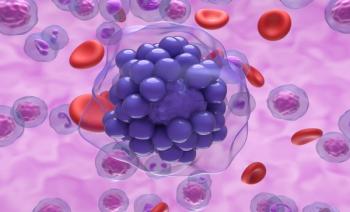
A systematic review and subsequent expert review gave comprehensive insight into prognostic factors for patients receiving treatment for relapsed or refractory diffuse large B-cell lymphoma (DLBCL).
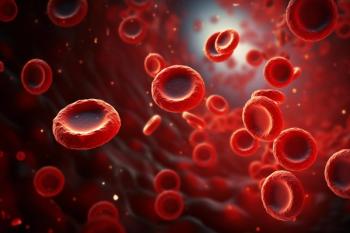
The addition of bexmarilimab to azacitidine elicited an ORR of 63% among patients with relapsed/refractory higher-risk myelodysplastic syndrome.

Pieter Sonneveld, MD, PhD, professor of hematology and chair of the Erasmus MC Cancer Institute in Rotterdam, Netherlands, discussed the continued use of subcutaneous daratumumab following initial treatment, as well as the changing landscape of multiple myeloma treatment.
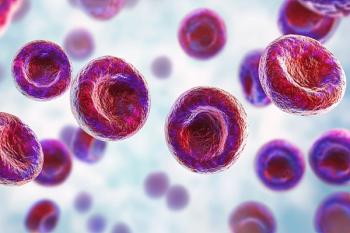
A significant number of patients taking Bruton tyrosine kinase inhibitors (BTKis) for chronic lymphocytic leukemia (CLL) develop atrial fibrillation (AF).

Mohit Narang, MD, explains why he switches patients with chronic lymphocytic leukemia (CLL) to the second-generation Bruton tyrosine kinase inhibitor.

Future research into non-Hodgkin lymphoma treatments needs to explore long-term outcomes and a better understanding of the biologic rationale for various treatments, explained ECHELON-3 principal investigator Craig A. Portell, MD, of UVA Health.
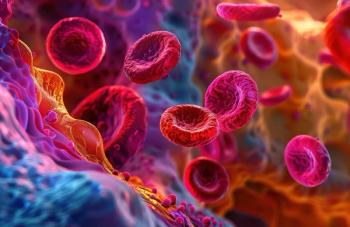
Machine learning identifies key biomarkers predicting hydroxyurea resistance in polycythemia vera, enhancing early treatment strategies and patient outcomes.

Pieter Sonneveld, MD, PhD, chair of the Erasmus MC Cancer Institute, discussed the findings of a study modeling long-term progression-free survival (PFS) in patients with multiple myeloma (MM) treated with a daratumumab quadruplet regimen.
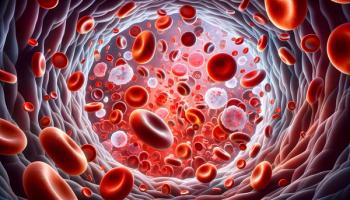
Participants in the CLL11 trial and a smaller group of patients followed after study completion showed improved overall survival with obinutuzumab and chlorambucil (G-Clb) compared with chemotherapy plus rituximab or chemotherapy alone for chronic lymphocytic leukemia (CLL).

Because clinical trials do not mimic the real-world application of multiple myeloma treatments, Ajai Chari, MD, discussed the variety of patient factors clinicians should consider in their practice.

Adding venetoclax to decitabine-cedazuridine significantly enhanced response rates in patients with higher-risk myelodysplastic syndromes (MDS) and chronic myelomonocytic leukemia.
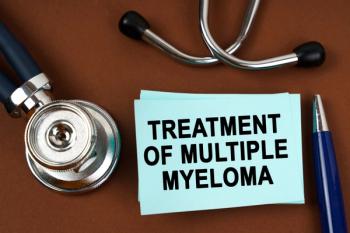
When it comes to treating multiple myeloma (MM), Ajai Chari, MD, argued that more is not always better. More intense treatment regimens, or those with more drugs, don't necessarily guarantee better outcomes.
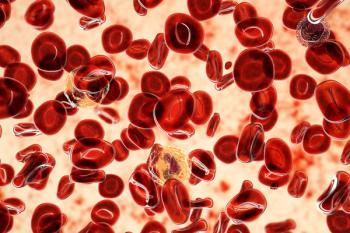
Cardiovascular risk factors increase the risk of arterial and venous thrombosis in patients with myeloproliferative neoplasms, a study found.
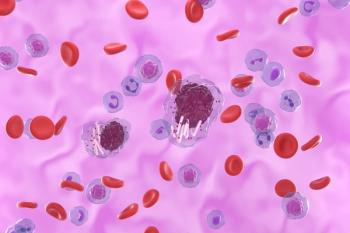
Acalabrutnib plus venetoclax, with or without obinutuzumab, improved progression-free survival (PFS) compared with chemoimmunotherapy (CIT) in patients with untreated chronic lymphocytic leukemia (CLL), meeting the phase 3 AMPLIFY study’s primary endpoint.

Previous work had suggested pausing Bruton tyrosine kinase (BTK) inhibitors before COVID-19 vaccination might boost immunity in patients with chronic lymphocytic leukemia (CLL).

A majority of cases of diffuse large B-cell lymphoma (DLBCL), the most common type of non-Hodgkin lymphoma globally, are diagnosed in patients 65 years and older; these patients are a heterogeneous group, and few studies have investigated how their outcomes are influenced by patient characteristics and care management regimens.

Progression-free survival improvement and drug costs make zanubrutinib a more cost-effective option in relapsed or refractory chronic lymphocytic leukemia (CLL), new research suggests.

Orca-T showed lower rates of graft-vs-host disease or infection compared with allogeneic hematopoietic stem cell transplantation for myelodysplastic syndrome (MDS) or acute leukemias in the Precision-T trial, Caspian Oliai, MD, MS, UCLA Bone Marrow Transplantation Stem Cell Processing Center, said.

Patients with chronic lymphocytic leukemia (CLL) who experience Richter transformation have a poor prognosis, but ibrutinib may help boost the efficacy of chimeric antigen receptor T-cell therapies.
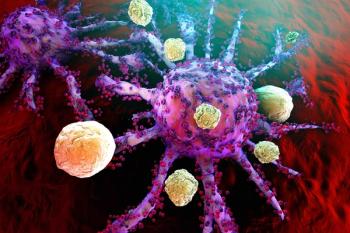
A number of recent trials have explored potential strategies for using immunotherapy in chronic lymphocytic leukemia (CLL).

Addressing the accessibility and high costs of chimeric antibody receptor (CAR) T-cell and bispecific therapies is crucial for maximizing their impact in multiple myeloma (MM).
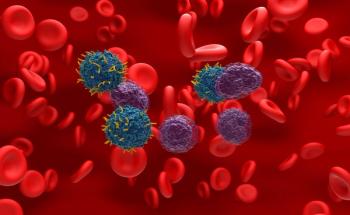
In this comparative analysis, patients with relapsed/refractory large B-cell lymphoma (R/R LBCL) received bridging therapy via radiation or systemic treatment while their chimeric antigen receptor T-cell therapy (CAR T) was being manufactured.
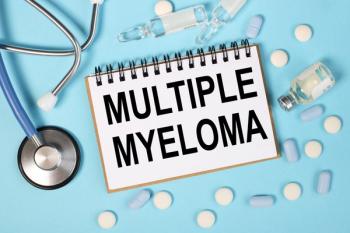
Several studies have been conducted, but questions remain about where such therapies will fit into multiple myeloma treatment strategies.















